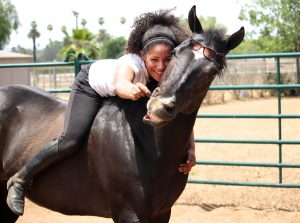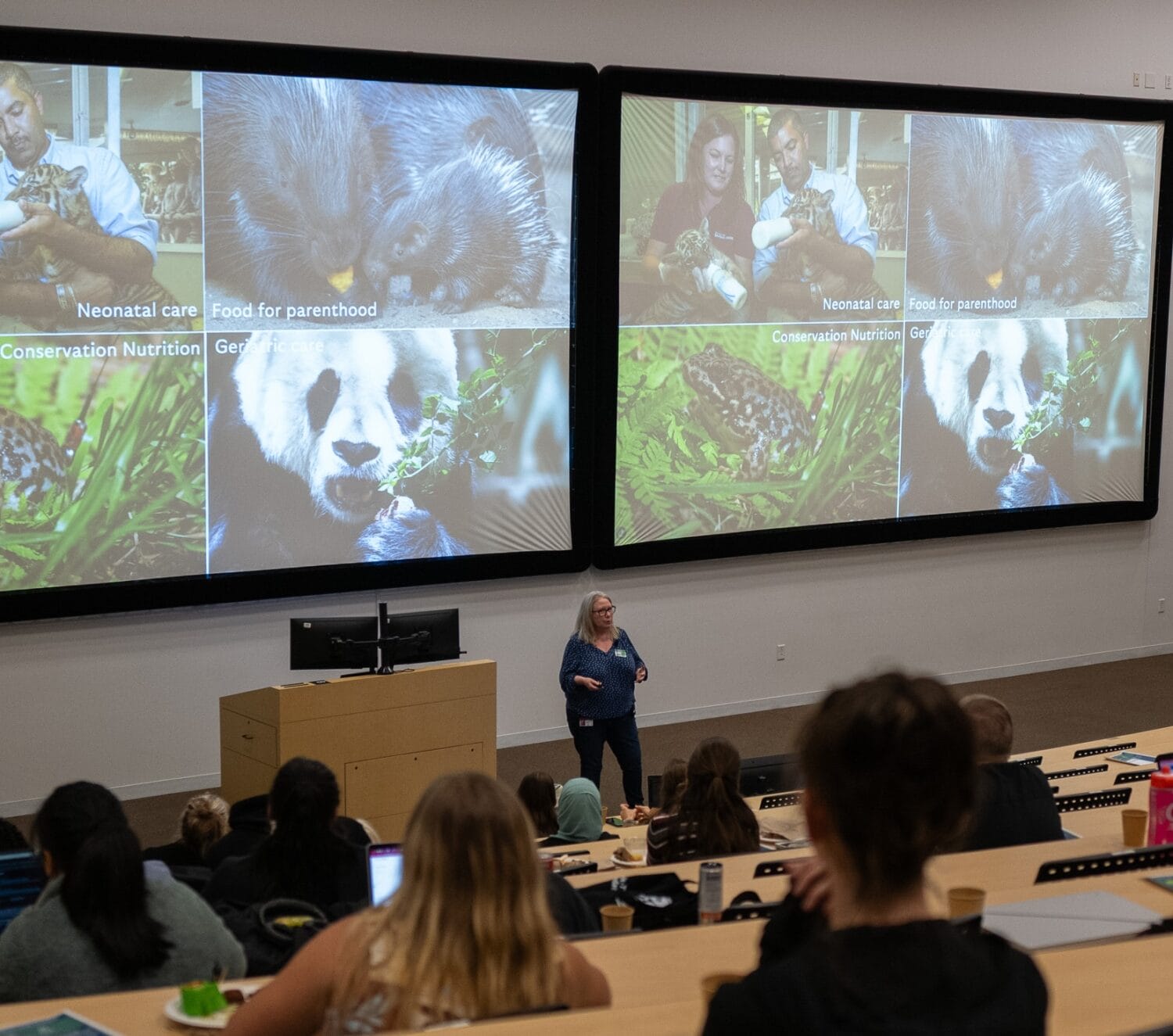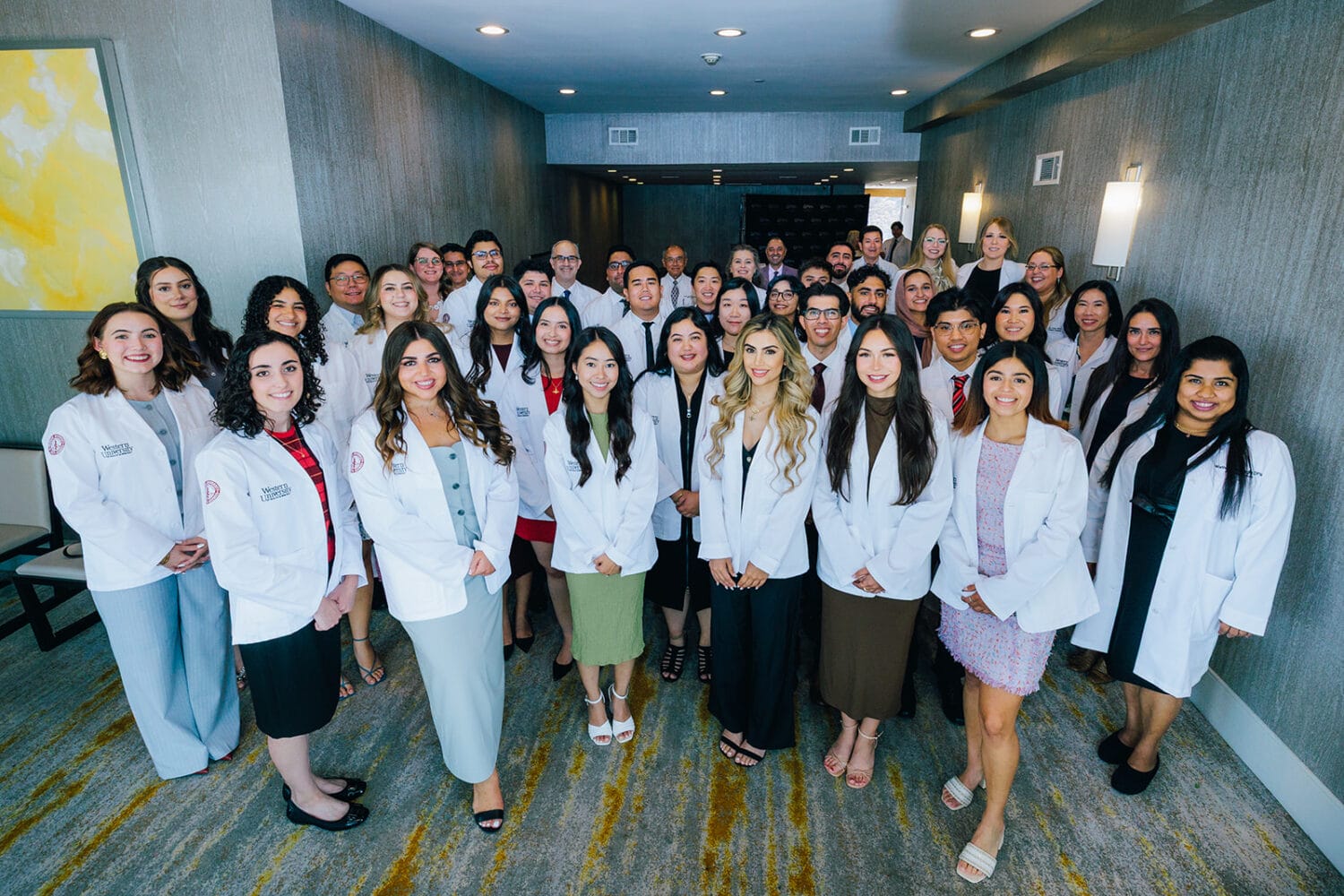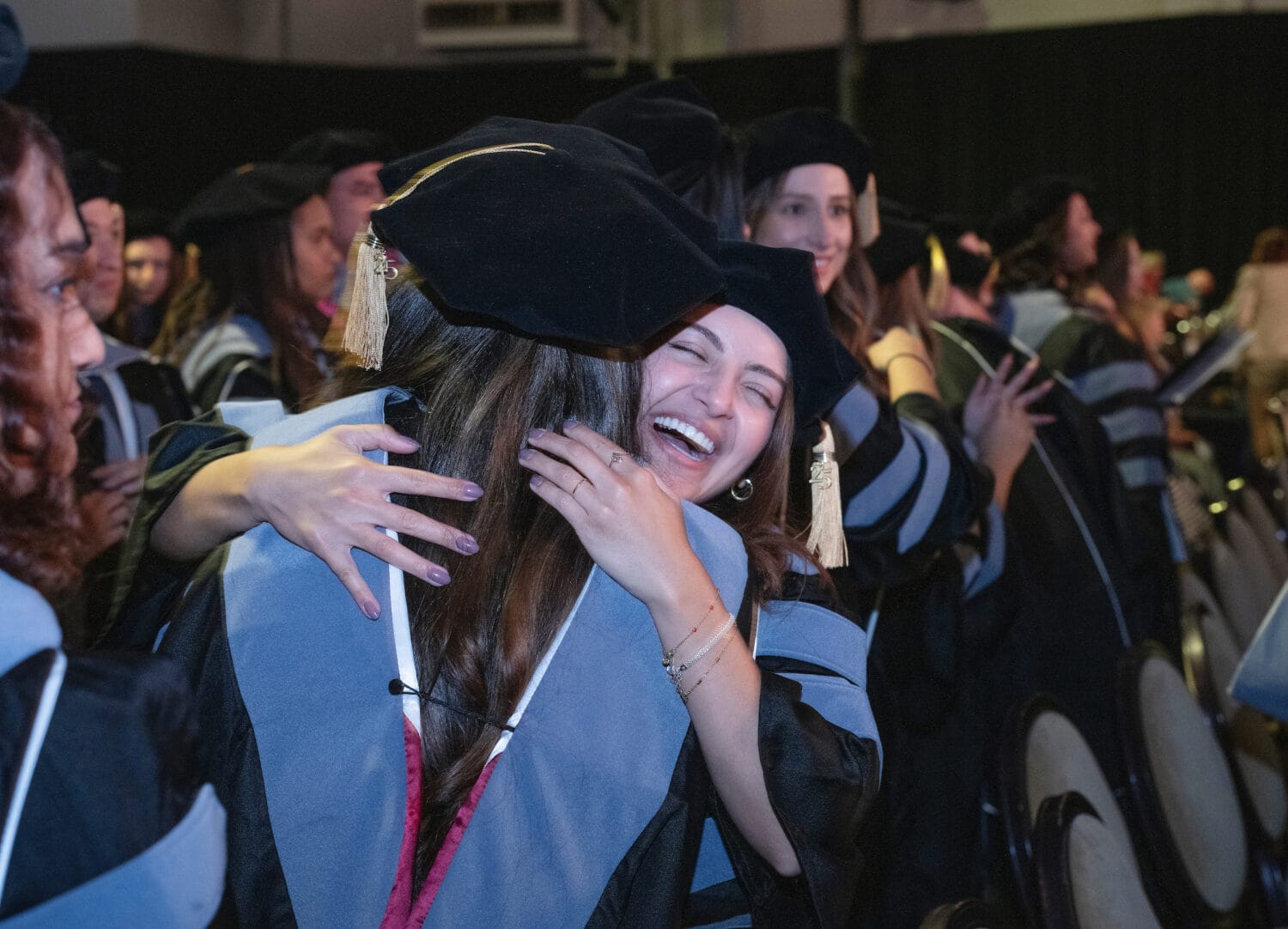WesternU College of Veterinary Medicine student earns American Quarter Horse Foundation Scholarship

Western University of Health Sciences College of Veterinary Medicine student Athena Kepler has received a $45,000 AQHF (American Quarter Horse Foundation) Margaret A. Haines Scholarship.
This scholarship is made possible by the late Margaret A. Haines, a passionate and vocal supporter of the health and well-being of horses. It promotes the funding of cutting-edge research, including the control and treatment of laminitis, the study of immunizations and vaccines for infectious diseases, and genetic and musculoskeletal injury treatment.
Kepler, a fourth-year CVM student, first began working with quarter horses at age 12. She was working for a trainer as a groom and assisting with tacking and riding her clients’ horses and lesson horses. When she first met Max, he bit her pants and tore her belt loop off. She was forced to ride him for weeks, getting bucked off every day. But she eventually earned Max’s respect and they started to click. On Christmas morning Max became hers, beginning her love of the American Quarter Horse.
“In the next many years, I trained him to pull a cart. He was jumping four-foot-high fences. He learned tricks like bowing, lying down, rearing, and saying yes and no,” Kepler said. “We did dressage with high-level maneuvers like passage and half-pass. We barrel raced at barn playdays and would win. Max put his heart into everything he did. Just always gave me 150 percent. His nickname at the ranch was the ‘warhorse’ because nothing would stop him.”
Kepler loved all breeds of horses prior to owning Max, but she was hooked on the quarter horse breed after owning and training him for more than 12 years. She loves quarter horses’ versatility, heart, and work ethic.
“I will always own at least one for the rest of my life. Getting him was the best thing that ever happened in my life,” Kepler said. “He allowed my passion of horses to blossom and he got me on the path I am now. It is because of him that I have the experiences and accomplishments I have.”
After graduation, Kepler plans on obtaining her certificate of equine rehabilitation practitioner and certificate of canine rehabilitation practitioner, as well as her Sports Medicine and Rehabilitation Board certification. She plans to aid in the development and monitoring of rehabilitation programs at local Southern California equine rehabilitation facilities and continue to practice equine podiatry while bringing awareness and change to bridge the divide between veterinarians and farriers, specialists in equine hoof care. She wants to continue practicing equine and canine sports medicine and develop a device company for equine and canine athletes and companions. Kepler earned a bachelor’s degree in bioengineering from UC Riverside.
“Out of all the fields of bioengineering, from tissue engineering to prosthetics, I enjoy orthopedics and prosthetics because I love to build things,” Kepler said. “I have always been fascinated with the musculoskeletal system. I will be focusing on orthopedic devices for equine and canine. But also, I have seen some things in the veterinary clinic where a device could help make life easier and more efficient, so I want to make those devices as well. I think the type of devices besides orthopedics will be anything that I have seen as lacking or missing as I go through my experiences and listen to others.”
Her interest in sports medicine began with her own athletic career, but she learned about veterinary sports medicine and podiatric medicine because of Max. Kepler met Dr. Michael Hoge when Max injured his tendon. Hoge taught her about veterinary sports medicine. Kepler worked with Equi-Cast and began helping horses with laminitis – inflammation of sensitive layers of tissue inside the hoof – to race on Southern California racetracks.
“I really liked podiatry because it is very much mechanics, and the results you see so quickly when a horse is sore to immediately seeing a difference and being able to balance the biomechanics of the foot,” Kepler said. “Sports medicine and podiatry go hand in hand, and both have biomechanics as a huge factor. With my background in bioengineering, I also became extremely fascinated with regenerative medicine, and that is another reason for my interest in sports medicine.”
Advances in knowledge and medicine are made through research, Kepler said. She is particularly interested in podiatric research and navicular disease – a syndrome of lameness problems in horses – because of her experiences with Max, who had navicular disease.
Kepler has been working with CVM Assistant Professor Babak Faramarzi, DVM, CVA, MSc, PhD, on equine hoof biomechanics. She has presented their research at multiple conferences and symposiums.
“He has always taught me everything it takes for research and residency,” Kepler said. “He pushed me for presentations and to always do my best. Dr. Faramarzi is an excellent professional mentor.”
CVM Professor Elizabeth Boynton, DVM, has also provided Kepler with mentorship and inspiration.
“I remember going to grab a coffee and just talking about life and veterinary medicine and being a woman in the field,” Kepler said. “I just enjoy her support and guidance with anything I come to her with. I am so happy to have Dr. Boynton as a support system and mentor.”



